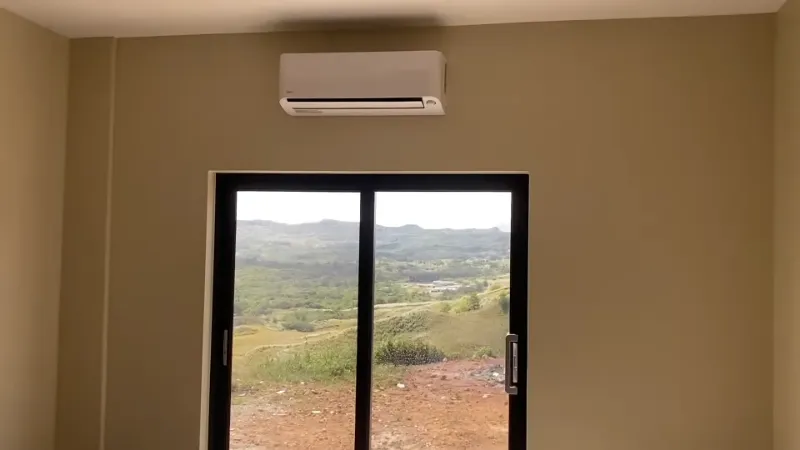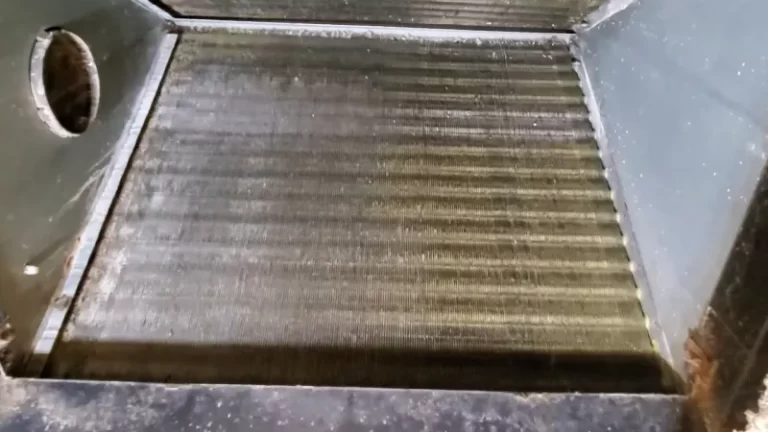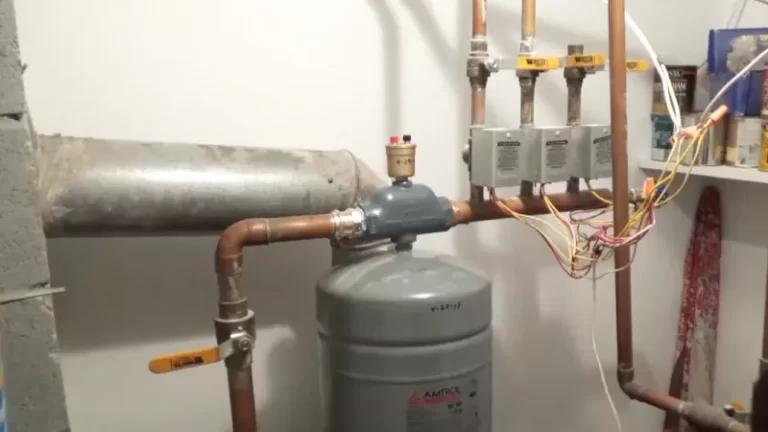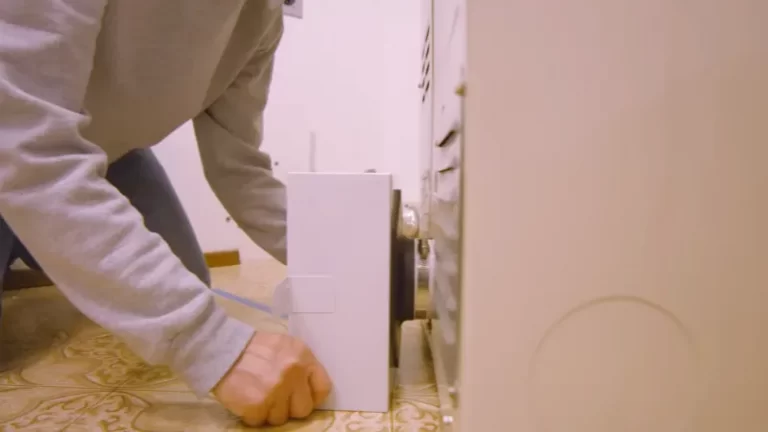How Long Does Air Conditioner Freon Last?

Air conditioners are essential appliances for keeping indoor temperatures comfortable during the hot summer months. One crucial component of an air conditioner is freon, a refrigerant that helps to cool the air.
Freon is known for its longevity, but how long does it actually last? In this article, we will discuss the lifespan of air conditioner freon and how to make sure it continues to work optimally.
You'll Learn About
How Long Does Air Conditioner Freon Last?
Air conditioner freon is a type of refrigerant used in many air conditioners to keep the air inside the home cool and comfortable. It is important to understand how long freon lasts in an air conditioner as it can affect the efficiency of the unit, and ultimately, the amount of money spent on energy bills.
How Does Freon Work
Freon works by absorbing heat from inside the house and releasing it outside. It does this by going through an evaporation process in the AC evaporator. This process causes the freon to cool, allowing it to absorb the heat from inside the house before it is vented outside.
How Long Does Freon Last
The length of time freon lasts depends on the type of air conditioner and how often the unit is run. Most freon lasts up to 10 years, but it can last longer if the unit is properly maintained. It is important to have the AC serviced regularly to ensure that the freon is still in good condition.
Signs of Freon Leaks
One of the most common signs of a freon leak is an increase in energy bills. If the AC is running more frequently than normal or for longer periods of time, there could be a leak in the system. Other signs include an unusual noise coming from the unit, an increase in humidity levels, or a strange odor coming from the vents.
It is important to understand that the length of time freon lasts in an air conditioner can vary depending on the type of unit and how often it is used. It is recommended that the AC be serviced regularly to ensure that the freon is still in good condition.
If a leak is found, it should be repaired as soon as possible to prevent further damage to the unit.
Can an Air Conditioner Run Out of Freon?
What is Freon
Freon is a type of refrigerant used in air conditioning systems. It is a colorless, odorless, non-flammable gas that is designed to transfer heat from one area to another. Freon is a chemical compound made up of chlorine, fluorine, and carbon and is also known as R-22 or HCFC-22.
How Does Freon Work
Freon works by absorbing heat from the air inside a room and transferring it to the outside air. Freon is compressed in the compressor and passed through a series of copper coils in the outdoor unit, where it releases the heat from the inside air and is cooled back down, before returning to the indoor unit and starting the process again.
Can an Air Conditioner Run Out of Freon
No, an air conditioner cannot run out of freon. Freon is a closed-loop system, meaning that it is constantly cycling and does not diminish over time. The only way for freon to escape the system is if there is a leak in the pipes that carry refrigerant from one part of the unit to the other.
What Happens if Freon Leaks
If freon leaks, it can cause damage to the environment, as well as the air conditioning system. Freon is a potent greenhouse gas and can have an adverse effect on the ozone layer if it is released into the atmosphere.
Additionally, a leak can cause the air conditioner to become less efficient, as the refrigerant will not be able to properly transfer heat from the inside to the outside.
How Can Freon Leaks Be Prevented
The best way to prevent freon leaks is to ensure that your air conditioning system is properly maintained and serviced by a qualified HVAC technician. Regular maintenance helps to identify any potential issues before they become a bigger problem, such as a leaking pipe or faulty compressor.
Additionally, it is important to make sure that your unit’s filters are regularly replaced, as a clogged filter can reduce airflow and cause the compressor to overwork, leading to a loss of refrigerant.
How Much Does Ac Freon Recharge Cost?
What is Freon Recharge
Freon recharge is the process of refilling the air conditioner’s refrigerant, which is used to cool the air. When the refrigerant is depleted, the air conditioner becomes less efficient, and it eventually stops working altogether.
To restore the air conditioner’s performance, the refrigerant needs to be refilled.
How Much Does It Cost
The cost of a Freon recharge will vary depending on the size of the air conditioner and the type of refrigerant used. Generally speaking, the average cost of a Freon recharge ranges from $100 to $350.
However, some types of refrigerant can be quite expensive, so the cost may be higher.
What is Included in the Cost
The cost of a Freon recharge typically includes the cost of the refrigerant, labor fees, and any additional materials that may be needed. It may also include the cost of disposing of any old refrigerant.
What Factors Affect the Cost
The cost of a Freon recharge can be affected by several factors, including the size and type of air conditioner, and the type of refrigerant used. The cost may also be affected by the labor rate charged by the contractor.
How Can You Save Money on a Freon Recharge
One way to save money on a Freon recharge is to shop around for the best price. Different contractors may offer different rates for the same service, so it’s important to compare prices before making a decision.
Additionally, some air conditioners may require special types of refrigerant, so it’s important to make sure that the refrigerant used is compatible with the system.
What Happens When Ac is Low on Freon?
Causes of Low Freon Charge
A low Freon charge is typically caused by a refrigerant leak or by inadequate refrigerant added during the initial installation of an air conditioning (AC) unit. Leaks can occur in various locations, such as the compressor, condenser, service valves, evaporator coils, and/or the refrigerant lines.
In addition, improper installation can also lead to a low Freon charge.
Signs of a Low Freon Charge
The most common signs of a low Freon charge in an AC unit include weak airflow, warm air coming from the vents, and a lack of cooling. Additionally, the evaporator coils may become covered with ice, indicating that the system is low on refrigerant.
The AC unit may also make strange noises during operation, such as hissing, rattling, or buzzing.
Potential Damage From a Low Freon Charge
When an AC unit has a low Freon charge, it can suffer from several potential damages. A lack of refrigerant can cause the compressor to overheat and eventually fail. In addition, the evaporator coils may become insulated with ice, which can lead to inefficient cooling.
Low freon can also cause the unit to run continuously, leading to higher energy costs.
How to Fix a Low Freon Charge
The first step in fixing a low freon charge is to identify the source of the leak. If the leak is coming from the compressor or condenser, it may be necessary to replace those components. Once the leak is fixed, the refrigerant should be recharged to the proper level.
This should be done by a certified HVAC technician, as it requires specialized equipment and knowledge.
Preventing Low Freon Charges
To prevent a low Freon charge in an AC unit, it is important to have the system serviced regularly. During routine maintenance, technicians will check for leaks and verify that the system has the proper amount of refrigerant.
In addition, homeowners should be aware of any signs of a low Freon charge and address the problem immediately.
Does Low Freon Always Mean a Leak?
Low Freon does not always mean a leak in the system. Other causes of low Freon levels include incorrect installation, overuse, or blockages. Freon is a type of refrigerant used in air conditioning and refrigeration systems.
It works by absorbing heat from the air and releasing it outside. When the Freon level in an AC system is low, it can cause reduced cooling capacity. In order to diagnose the cause of the low Freon, an HVAC technician must inspect the system.
This includes checking for visible signs of leakage or blockages in the lines. The technician can also check the performance of the compressor to see if it is working properly. If no leak is found, the technician may need to refill the system with more Freon.
A technician can also check for faulty electrical components or issues with the refrigerant lines.
Where Do Most Freon Leaks Occur?
Freon leaks typically occur in the evaporator coil. The schrader valve, valve cores, copper lines, “U” connectors, and weld joints are also common leak points. The evaporator coil is the component in the air conditioning system that absorbs heat from the air.
It contains a refrigerant, such as Freon, which is compressed and circulated through the system. The Freon flows through the evaporator coil at high pressure. Over time, the coil can become damaged or worn, causing tiny cracks and leaks.
These leaks can be very small and hard to detect. When the Freon leaks, it can escape into the atmosphere and cause environmental damage. It is important to have a professional inspect the system regularly to ensure that any leaks are identified and repaired quickly.
Early detection of a Freon leak can save money and help protect the environment.
To Recap
The lifespan of Freon in your air conditioner largely depends on the system’s maintenance and usage. In a well-maintained unit, Freon can last for years without needing a recharge.
However, leaks or improper handling can reduce its effectiveness, leading to cooling issues. Regular inspections and timely repairs are essential to keep your AC running smoothly.
If you’re concerned about your AC’s performance, it’s worth checking other HVAC components as well. For instance, a furnace with reversed polarity can cause unexpected issues in your heating system. Similarly, if your Honeywell thermostat keeps rebooting, it might indicate an electrical problem that needs attention. Additionally, understanding how to troubleshoot baseboard heat issues can help maintain overall home comfort.



